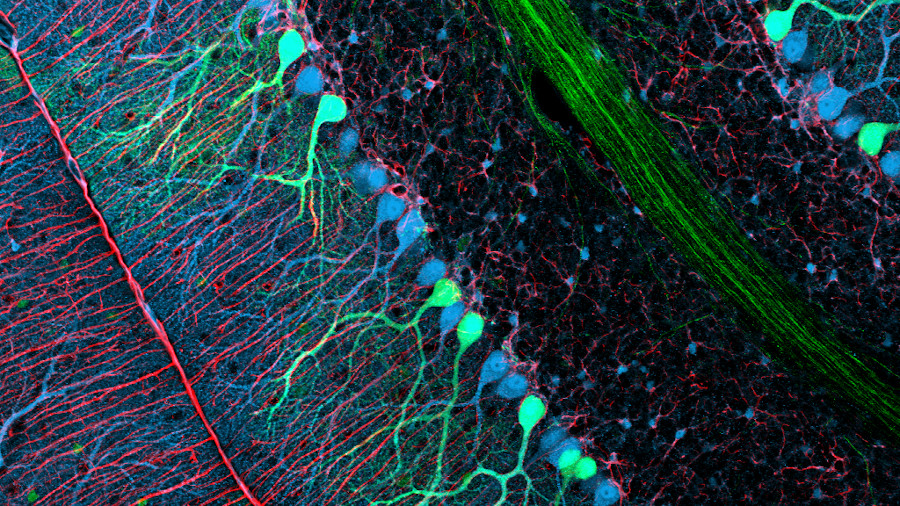The cerebellum is not only responsible for motor and sensory functions; it has recently been shown that it is also involved in our social behavior. In a study published in the journal Nature Neuroscience, an international research group with the participation of the Institut de Neurociències UAB (INc-UAB) analyzed how it occurs in mice and found out that dopamine is the neurotransmitter in charge of this effect. This finding is vital to understanding what goes on in the brains of people with disorders such as autism, depression, or schizophrenia, among others.

Until recently, emotions and our social behavior were thought to be regulated primarily in a set of brain areas called the limbic system through a neurotransmitter called dopamine. This region is where the processes of motivation and reward take place. However, several recent studies have suggested that the cerebellum, a region primarily involved in motor control, also plays an important role, although it was not clear how this effect occurred. In this study, a research group with the participation of INc-UAB has shown that, contrary to what was thought, there are type 2 dopamine receptors (also called D2) in mice cerebellum, and they are those modulating, in this area of the brain, social aspects of behavior.
Through various techniques, such as histological analysis, the study of cell RNA, or the observation of 3D imaging, researchers have observed that a group of cells in the cerebellum, called Purkinje cells, present D2 receptors. "This is a key finding, because it was thought that the existence of such receptors in this area was almost non-existent", explains Dr. Emmanuel Valjent, researcher at INSERM (France) and coordinator of the article.
To study their function, genetic editing techniques have been used to overexpress or remove D2 receptors in Purkinje cells from the cerebellum of adult mice. Then, they analyzed how these animals interact with other unknown mice. "We have demonstrated, through behavioral tests, that D2 modulates social interaction. Also, we did not notice any difference in the ability of these animals to perform motor tasks or coordinate movements, so these functions would be controlled by other receptors", explains Dr. Laura Cutando, Marie-Curie researcher at the Mitochondrial Neuropathology research group at INc-UAB, and first author of the article.
This study has been carried out thanks to the multidisciplinary collaboration of INSERM (France), the University of Lausanne (Switzerland), and the INC-UAB (Catalonia). And it is key for understanding mental disorders in which social behavior is altered; diseases for which often it is difficult to find treatments that improve the quality of life of patients and their relatives.
Research paper:
Cutando, L., Puighermanal, E., Castell, L. et al. Cerebellar dopamine D2 receptors regulate social behaviors. Nat Neurosci (2022). https://doi.org/10.1038/s41593-022-01092-8






